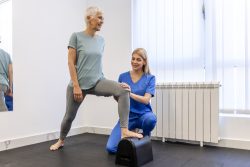 It’s well-established that exercise improves health. Regular physical activity not only fortifies muscles but also enhances blood vessels, bones, and immune system. But might it also promote the growth of nerve cells? Recent research indicates that exercise can enhance neuron development not just through biochemical pathways but also through the mechanical actions of muscle contractions.
It’s well-established that exercise improves health. Regular physical activity not only fortifies muscles but also enhances blood vessels, bones, and immune system. But might it also promote the growth of nerve cells? Recent research indicates that exercise can enhance neuron development not just through biochemical pathways but also through the mechanical actions of muscle contractions.
During physical activity, muscles produce chemicals known as myokines. Myokines consist of various substances released by muscles; some of these substances may benefit nerve cells, while others may not affect them at all. Although muscles continuously release myokines, their production increases during exercise.
Neurons are physically linked to muscles and thus also extend and flex in conjunction with them. Neurons subjected to myokines showed a growth rate four times that of unexposed neurons. This growth is significantly quicker and more pronounced, with immediate effects. The researchers wanted to investigate whether, even without biochemical signals from the muscles, the mere act of stretching muscles back and forth, simulating the mechanical forces of exercise, could also influence neuron growth.
The research team cultivated neurons on a mat equipped with tiny magnets and employed an external magnet to delicately stretch the neurons, mimicking the mechanical forces encountered during exercise. They subjected the neurons to this exercise for 30 minutes daily. Remarkably, this mechanical stretching resulted in neuron growth similar to that observed in neurons stimulated biochemically.
This discovery has the potential to lead to groundbreaking treatments for nerve repair. Engaging and exercising muscles could aid in the recovery and growth of nerves following nerve damage. Since nerves are crucial for controlling muscle movement and transmitting important information throughout the body, exploring how exercise affects neurons could open up new treatment avenues for nerve damage and neurological conditions.
To view the original scientific study click below:
Actuating Extracellular Matrices Decouple the Mechanical and Biochemical Effects of Muscle Contraction on Motor Neurons





